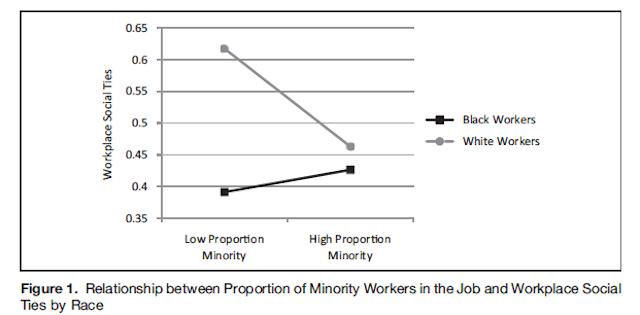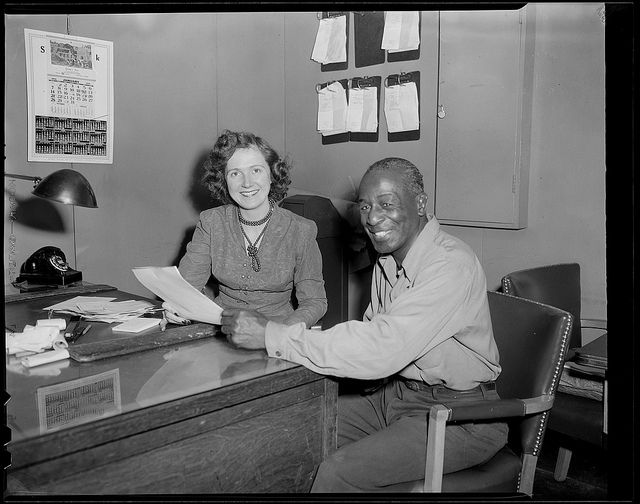Blacks are happier at work than whites, according to a new study in the December issue of Social Psychology Quarterly. Researchers found this despite minorities being overwhelmingly outnumbered in the workplace and oftentimes holding lower-ranking jobs.
Lead author Melissa Sloan and her fellow researchers worked with more than 1,300 state government employees in Tennessee to arrive at their findings. (All you statheads are free to call Small Sample Size here.) “One might expect blacks to feel low levels of positive emotion at work given that blacks frequently occupy positions of lower status than whites, have fewer workplace social ties, and perceive less coworker support compared to whites,” the authors write.
“We were surprised by this,” Sloan said in a press release announcing the study’s findings. “Based on the history of discrimination against African Americans in the workplace, we thought blacks would experience more negative emotions at work than whites. As it turned out, the opposite was true.”
As far as camaraderie is concerned, at workplaces with shockingly low numbers of minorities (less than 13 percent) black workers considered 39 percent of their colleagues to be close friends. In the same situation, white workers considered 61 percent of their fellow employees good friends. As you can see in the chart below, the more minority workers, the fewer social ties there are for white people.

But the most terrifying finding — and perhaps it’s time to cancel that “post-racial America” parade — is that in workplaces with more minorities, white workers felt more negative emotions.
“Although the proportion of minority workers in a job does not influence the workplace emotional experiences of black workers,” the authors continue, “white workers in jobs with a greater presence of minority workers feel more negative emotions while at work than their white counterparts in less racially diverse jobs.”
It’s still the 1960s in the American office, at least for those who work for the Tennessee state government.
The Equity Factor is made possible with the support of the Surdna Foundation.

Bill Bradley is a writer and reporter living in Brooklyn. His work has appeared in Deadspin, GQ, and Vanity Fair, among others.

















